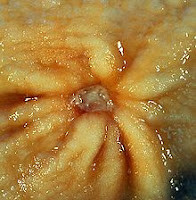You are a healthy person, it's just that you have a stomach ulcer. Jump for joy? I do not think! The ulcers are painful for the introduction of your life and changes in lifestyle to significantly reduce pain and relieve the condition. Of course, this has no value if the patient knows he has a stomach ulcer, if they know / do not know how to recognize symptoms of an ulcer is the condition to worsen.
Abdominal pain is usually the most common symptom of an ulcer, which may be present. The pain can last a long, sometimes appearing several hours or just a sharp pain, and disappears as quickly as it came. If the ulcer, which means that the stomach is more likely to say that behind his head during or immediately after eating.
Another symptom is the alarming situation of internal bleeding. This bleeding is usually seen in the stool. It is not always the case, can cause ulcers and internal bleeding, which remain hidden for long. Jerry Lewis knew he was bleeding internally for a long time unnoticed. However, the pain, all other symptoms of the ulcer was removed, I'm sure does not help the situation!
If a patient begins to experience these symptoms, see a doctor if you notice, it is best to seek advice and a first condition is to sit down and be too late. If the ulcer is left for development, which can get worse and people end up really bad. After all the symptoms immediately and you can continue with a completely healthy life.
Abdominal pain is usually the most common symptom of an ulcer, which may be present. The pain can last a long, sometimes appearing several hours or just a sharp pain, and disappears as quickly as it came. If the ulcer, which means that the stomach is more likely to say that behind his head during or immediately after eating.
Another symptom is the alarming situation of internal bleeding. This bleeding is usually seen in the stool. It is not always the case, can cause ulcers and internal bleeding, which remain hidden for long. Jerry Lewis knew he was bleeding internally for a long time unnoticed. However, the pain, all other symptoms of the ulcer was removed, I'm sure does not help the situation!
If a patient begins to experience these symptoms, see a doctor if you notice, it is best to seek advice and a first condition is to sit down and be too late. If the ulcer is left for development, which can get worse and people end up really bad. After all the symptoms immediately and you can continue with a completely healthy life.
 11:01 PM
11:01 PM
 Ken Mark
Ken Mark



















































